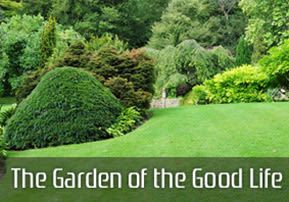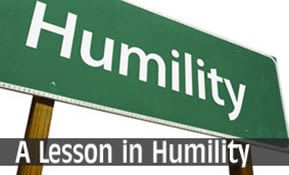
Terumah: The Garden of the Good Life
Its beauty cannot be expressed in a poem or captured in any picture; all the tastes, fragrances and sights in the world can be found in this wondrous garden...

“Let them take for me a Terumah (portion)” (Shmos 25:2).
In Rebbe Nachman’s story of “The Seven Beggars”, the deaf beggar, who appears on the second day, claims that he lives a truly good life and how ‘The Wealthy Land’ endorsed this fact.
This is the story:
There was a land with a wondrous garden within. It contained all types of fruit and all the tastes in the world could be experienced in it. Amazing fragrances also filled the garden’s air and everywhere one looked, one could see the most exquisite flowers and extraordinary colors. For many years the people of the land lived rich  and good lives around the garden. Nothing was ever lacking since the garden provided them with all their needs. There was a certain gardener who cared for the garden and one day he suddenly disappeared. From then on the garden began to deteriorate. Little by little it began to lose its tastes, the pleasant fragrances began to dissipate and the bright colors faded. Nevertheless they were still able to live off the wild plants that remained in the garden.
and good lives around the garden. Nothing was ever lacking since the garden provided them with all their needs. There was a certain gardener who cared for the garden and one day he suddenly disappeared. From then on the garden began to deteriorate. Little by little it began to lose its tastes, the pleasant fragrances began to dissipate and the bright colors faded. Nevertheless they were still able to live off the wild plants that remained in the garden.
One day a cruel king attacked the land and sought to destroy the good life that the land had from the garden. He placed three groups of servants and commanded them to do as he instructed, in order to destroy the people’s senses so that they would have no benefit from the garden at all. They did what they did and as a result all the people’s senses were ruined. Whatever anyone tasted had a horrid taste, every fragrance that they smelled had a terrible stench and their eyes became dimmed as if they were covered with clouds. Nothing helped to save the garden and whoever came to try and fix it was struck by the very same plague. The same thing happened to the people from ‘The Land of Wealth’ who claimed to live the good life and thought they could rectify the Garden. They then admitted to the deaf beggar that if he could rectify the Garden, it would certainly prove that he did indeed live a truly good life. The deaf beggar entered the city and began to investigate its happenings. He wandered from city to city mingling amongst the people and discovered something quite terrible. In every place one could find people gathering together and telling jokes and laughing. When he listened more carefully, he realized that the jokes were filled with profanity and obscenity. He also discovered that the land was full of falsehood, bribery and immorality.
All this, he realized, was being caused by those three groups of servants who had been sent by the evil king to spread these things throughout the land, thereby destroying the people’s senses. The deaf beggar suggested to the countrymen that they appoint guards to discover who these servants were, to capture them and to banish them once and for all. The servants were caught and expelled from the land. Then, a call of excitement began to be heard throughout the land: “Perhaps this crazy man who is going around claiming to be the gardener, the one whom everyone has been chasing away and throwing stones at, perhaps he really is the gardener!” He was brought before those who were appointed to rectify the land and the deaf beggar, who was also there, proclaimed: “Certainly this is the real gardener.”
* * *
It may seem somewhat unrealistic but the truth is there certainly is such a thing as ‘the good life.’
Yes, in this very world there is a life that is filled with wealth and goodness and every one of us has a share in it. Avodas Hashem is a wondrous garden, the beauty of which is indescribable; it cannot be expressed in a poem or captured in any picture. All the tastes, fragrances and sights in the world can be found in this wondrous garden. A garden can be the most beautiful thing in the world, but understandably everything depends on the gardener. He must find the suitable place, supply the correct amount of water and ensure the necessary climate for each tree and plant. A garden requires time, effort, constant care and expertise. If not given the proper treatment, a splendid garden is bound to deteriorate quickly into a barren wasteland.
Where is ‘the good life’? Great and good people have despaired of finding it. Is there truly such a thing? Maybe it’s just a story? Not once does a person find himself standing upon the wasteland of his garden of life, tying to recall the breathtaking vision of what was once there, struggling to even imagine that this swamp was once a flourishing garden. He asks himself again and again “where is the sweet taste, the pleasant fragrance, the beautiful vision?”
It is true, there is someone who is terribly bothered that you have such a beautiful garden, and he spares no time and effort to destroy it. He is called “Amalek”. Since the very first time that we encountered him in the desert between Mitzrayim and Eretz Yisrael he has not given up. He appears in all different figures and forms and does everything in his power to transform the garden of life into something utterly intolerable. Every Jew has a great and wondrous lot; he has sweet Torah that produces delicious and juicy fruit, he has tefillah which has entirely sweet tastes and intoxicating fragrances, he also has Mitzvos and Chaggim and other wondrous things. The cruel king cannot bear this; he knows that in order to destroy such a beautiful life he must get right to the root and do something that can detach a Jew from his wonderful garden. What does he do? He simply sends in three groups of servants, each one entering the garden with a different act. One destroys the sense of taste (through profanity), one destroys the sense of smell (through immorality) and one clouds the vision (through bribery). This is how one loses the ability to draw good life from the garden and it turns from something wondrous, into a nightmare. Instead of a Jew having a good and wondrous lot in the garden of life, he finds himself rolling amongst the clumps of dirt in a barren wasteland. He tries to find something tasteful in his words of Torah and Tefillah, but finds them rotten and lifeless. He tries to enliven himself with a pleasant fragrance, but finds the rotten smell of a carcass. Even to see something small to revive his soul, a little spark of hashgacha (Divine providence), a new perception in emunah, this too is impossible and a thick dark cloud covers everything.
We have experienced situations like this before. Right after the receiving of the Torah, the Jewish people stumbled with the sin of the golden calf, the ‘garden’ was destroyed and the ‘servants’ occupied it. We were almost completely lost when suddenly ‘the gardener’ appeared – Moshe Rabbeinu, who achieved for us forgiveness and pardon, gathered the scattered and tainted souls and returned them to the garden of life. He returned their sense of taste, their sense of smell and their clarity of vision – how wondrous!
But what happens when the gardener himself is lost, is there any chance to rectify the garden? Moshe Rabbeinu himself described what would happen in such a situation. In the end of Sefer Devarim, when it speaks about what will happen after Moshe’s passing, Hashem says: “and I will Hastir Astir (completely hide) My Face…” – a double concealment. Utter obscurity, a frightening situation of darkness, confusion and bewilderment, and worst of all – the gardener is gone!
This is what happened towards the end of the seventy year exile (after the destruction of the first Beis Hamikdash), when the darkness intensified to a level of “I will completely hide…” Haman sought to make use of this opportunity; he spotted the weakness and wished to use it to completely destroy the Jewish people’s fragile connection to the garden of life. He had a plan, to completely detach the Jewish people from all the seventy faces of the Torah and to make their destiny a world of pain, suffering, apostasy and questions.
But even for a situation like this, Hashem left a means for salvation and healing. Right then, in the depth of the darkness of the gallus (exile), when the vision, taste and smell had been buried long before under the layers of iniquity and crookedness, a new hope was born. In the midst of the darkness appeared the light of Mordechai and Ester, and it was enough to completely remove the concealment, to banish the servants and to return the garden to its proper state. For even after Moshe passed on, about which it is explicitly stated “I will completely hide…”, this goes hand in hand with the guarantee that follows : “for it will not be forgotten from his descendants” (Devarim 31,21).
The gardener is never lost; the world cannot exist without him. He walks around his garden, shedding one form and taking on another – he is always there, somewhere near to his garden. Everyone asks “where is the gardener?”, but he is right there. Yes, he doesn’t look exactly the same as before and sometimes he even seems to be crazy and strange. He even explicitly announces that he is the gardener, but who would even think of listening to him. Everyone is so busy trying to find solutions that no one has the time to listen to the ramblings of such a strange person.
In Shushan Habira this was exactly the situation. Mordechai Ha’Yehudi, the one whom we today crown with the glory of the redemption and the salvation, was seen in the eyes of the masses as a strange person doing crazy things, one who started up with the wicked, an uncompromising zealot and many other things. It never occurred to anyone that specifically this strange person was really the gardener himself.
We find ourselves in a similar situation today. The gardener is right here with us, his books even fill the shelves in our homes. We look inside them searching for an insight, or something to say over, but it never occurs to us that right here lingers the gardener…
The gardener is not lost, he is simply considered to be a crazy man, someone with no relevance to our time; once there was such a person, but now, how could it be?
The great change takes place in the month of Adar. Mordechai goes out “dressed in royal garments of turquoise and white with a large gold crown” (Ester 8,15). Suddenly the world understands that there is such a thing as the Tzaddik. They begin to understand that it could be that the books of the Tzaddikim truly contain the healing for the garden of life and that we should begin to search there, to believe that he who claims to be the gardener will find the way to rectify what has been damaged in us.
Mordechai commands “Go and gather all the Jews” (Ester 4, 16). In order to find the gardener we must gather together and abandon the mockery. We must unite amidst an emunah that the gardener is truly in our midst and yearn with a truthful desire to find him. When the followers of the Tzaddik gather together and search for ways with which to identify the servants and to rid themselves of bad habits and to acquire good middos (character traits), then an excited call is suddenly heard throughout the world and the truth is revealed: ‘certainly this is the gardener,’ he was always here amongst us but we never realized…
What is it that is required of us in order to return ourselves to the wondrous garden of life – “let them take for me a Terumah (portion)” (Shmos 25,2). Do something, no matter how small. The Mishkan was built from small donations. When we do something small for Hashem, when we donate a little of ourselves, this already builds the Mishkan and we return to the marvelous life of the garden.
Once again we have a place in Kedusha, once again we have a truly good life.
* * *
Courtesy of the Gates of Emunah Weekly Publication












Tell us what you think!
Thank you for your comment!
It will be published after approval by the Editor.